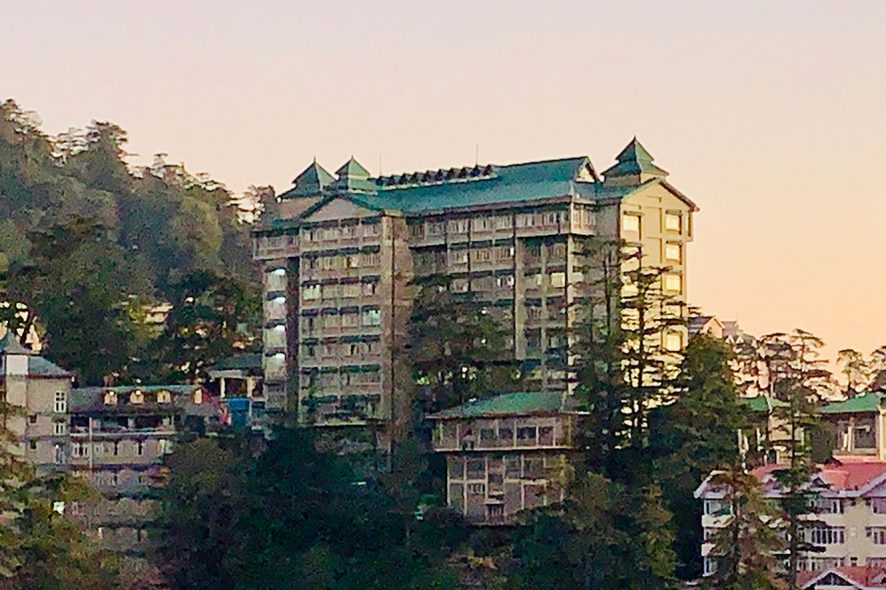Himachal Pradesh High Court: Tarlok Singh Chauhan J. allowed the present application and modified the previous order.
Background
The facts of the case are such that the parties to this application got separated from each other and their marriage was dissolved by a decree of divorce granted by this Court vide judgment which was later upheld and application under Section 25 of the Act instituted by the applicant/appellant for permanent alimony was allowed by this Court. The applicant/appellant thereafter filed an application for rescinding the decision which was dismissed and accordingly, the applicant approached the learned District Judge, Mandi and filed an application under Section 25(2) of the Act but the same was dismissed and aggrieved by this dismissal, the applicant filed an appeal which was disposed of as having been compromised between the parties outside the Court. As per the compromise/agreement, the nonapplicant/ respondent agreed and undertook to deposit a further sum of Rs.1,50,000/- in addition to already deposited by him as per a previous. The Court held that the applicant is entitled to interest on the total sum till her life time or till her remarriage. In addition thereto, non-applicant/respondent also agreed to pay a sum of enhanced maintenance to the applicant. The Court while disposing of the appeal observed that in case of any difficulty liberty was reserved to the parties to approach the Court for seeking further directions/clarifications. Hence the instant application was filed under Section 25 (2) of the Hindu Marriage Act, 1955 i.e. HMA for the enhancement of the permanent alimony.
Issues
- Whether by agreement the jurisdiction of the competent court under Section 25(2) of the Hindu Marriage Act, 1955 can be ousted?
- Whether the right to future maintenance is transferable and if not whether the settlement is void so far the terms of maintenance is concerned?
Analysis and Observations
The Court observed that by agreement, jurisdiction of the court which has been created by a statute cannot be taken away. Section 25 as a whole confers the jurisdiction on the competent court to provide permanent alimony and maintenance “at the time of passing any decree or at any time subsequent thereto,” on application made to it for the purpose by either the wife or the husband, as the case may be, order that the respondent shall pay maintenance and support such gross sum (alimony) which is factored by various element as statutorily provided or by the law as developed in the course of time.
The Court further observed that even if, a fixed maintenance allowance is agreed upon towards a decree of divorce, the quantum if accorded and recorded by the court, has to be understood for purpose of maintenance within the ambit of Section 25(1) of the Hindu Marriage Act and with the change in the circumstances the same shall be liable to be re-assessed under Section 25(2) of the Hindu Marriage Act.
The Court relied on judgment Hirabai Bharucha v. Pirojshah Bharucha, AIR 1945 Bombay 537 wherein it was held that “The wife applies under S. 40 for alimony. It is held that on grounds of public policy the wife cannot enter into a contract that she will not claim any alimony in future. The contract is void and the Court will take notice of that and ignore that part of the order although it was made by consent. It was observed that the wife cannot barter away her right to future maintenance and enter into a contract to that effect and such a contract will be a void contract in the eye of law.”
It was also stated that assuming a wife gives up her right to claim a higher rate of maintenance allowance in future her consent, will not bring into existence a valid contract. Such an agreement will not only defeat the provisions of subsection (2) of Section 25 but will also frustrate the purpose of giving maintenance allowance.
The Court further observed that a woman who is constrained to leave matrimonial home, should not be allowed to feel that she has fallen from grace and as per law, she is entitled to lead a life in similar manner as she would have lived in the house of her husband.
Bench also observed that the purpose is to achieve ‘social justice’. In interpreting provisions relating to maintenance, the Court is expected to bridge the gap between law and the society. Provisions relating to maintenance fall in category of legislation which is aimed at empowering the destitute and achieving the social justice, equity and dignity of the individual. In dealing with such cases there is necessity for drift from the ‘adversarial litigation’ to social context adjudication”, which is the need of the hour. In granting permanent alimony no arithmetic formula can be adopted as there cannot be mathematical exactitude. It shall depend upon the status of the parties, their respective social needs and financial capacity of the husband and other obligations.
The Court adverting to the facts of the present case observed that the respondent in the instant case is a retired Shashtri teacher and is currently drawing a pension of about Rs.32,000/-. whereas the applicant has admittedly no independent source of income and is receiving interest of Rs.1240/- per month which is accruing on the amount invested in the bank.
The Court thus held “the present application is allowed and the respondent is directed to pay a further sum of Rs. 8000/- per month to the applicant. The concerned Treasury Officer is directed to henceforth deduct a sum of Rs.8000/- per month from the pension of the respondent and remit the same directly to the bank account of the applicant.”
In view of the above, present application was disposed of.[Beasa Devi v. Shiv Dayal, 2021 SCC OnLine HP 790, decided on 28-04-2021]
Arunima Bose, Editorial Assistant has reported this brief.
Advocates who appeared before the Court:
Counsel for petitioners: Mr. Raman Sethi
Counsel for respondents: Mr. Devender K Sharma






